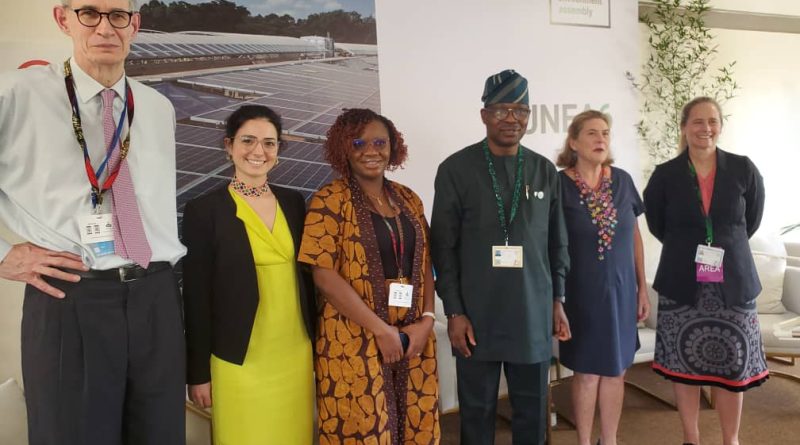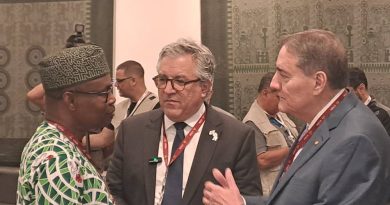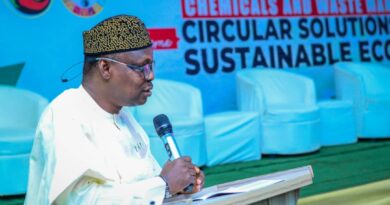Salako Tells United Nations Environment Assembly That Nigeria Is An Advocate of Nature-based Solutions To Address Global Environmental And Climate Challenges
Says 7.6 million plants and seedlings were produced And 2,801 hectares of land Reforested
Nairobi- Dr. Iziaq Adekunle Salako, the Minister of State for Environment has said that Nigeria is a strong advocate of nature-based solutions, which offer a cost-effective way to address global environmental, economic, climate and societal challenges. He noted that one of the key components of Nigeria’s Great Green Wall program was the establishment of a 1,359 km contiguous shelterbelt from Kebbi State in the northwest to Borno State in the northeast, which serves as a windbreak. The result of this important work, Salako said, speaks for itself and shows how greatly the initiative benefits Nigeria’s efforts.
Salako stated these at the sixth session of the United Nations Environment Assembly (UNEA-6) Side Event in Nairobi, Kenya on Intergovernmental Consultations on Nature Based Solutions: Moving forward with the recommendations holding on 26th February, 2024.
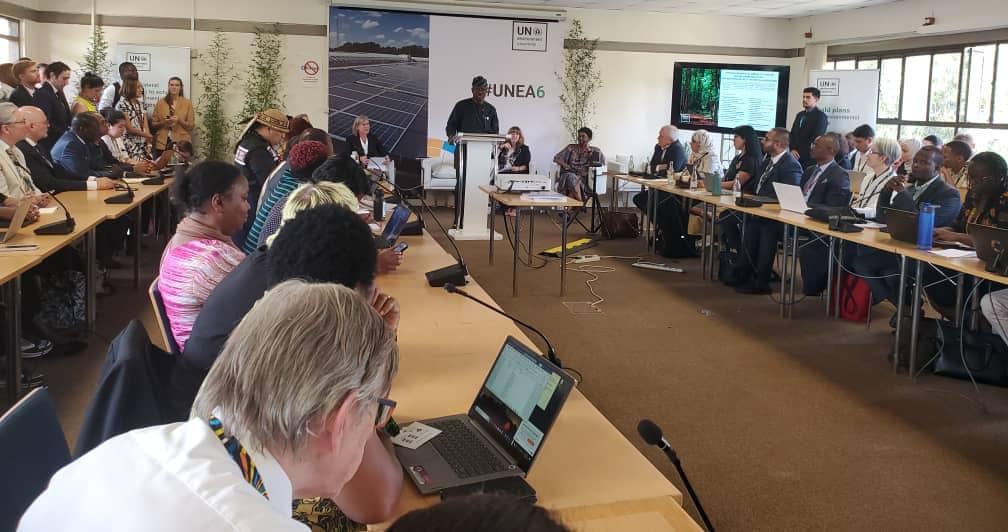
He said, “As of today, thanks to the Great Green Wall program, in Nigeria 7.6 million plants and seedlings were produced, 2,801 hectares of land reforested, 373 hectares of multipurpose gardens were created, 1,205 people trained and 1,396 jobs created.
“The Hydrocarbon Pollution Remediation Project (HYPREP) established by the Nigerian government with one of its key mandate being to restore oil degraded mangroves is using nature based solutions. So far, HYPREP has produced a contextual manual for mangrove restoration in the Niger Delta, delineated 3000 hectares for mangrove restoration, rehabilitated 460 hectares of mangrove and is expected to plant 10 million of mangrove seedlings over the next 3 years.
“The Great Green Wall and the mangrove restoration project are setting bold precedents of how nature-based solutions can deliver multiple benefits for nature and people by restoring biodiversity; helping our communities to adapt to climate change; providing food and water security; and bringing peace, jobs, and sustainability to the region. My sincere thanks to UNEP for your continued commitment towards supporting Nigeria and other African countries to implement the Great Green Wall and the HYPREP initiatives, thus helping us to improve the lives and livelihoods of many.”
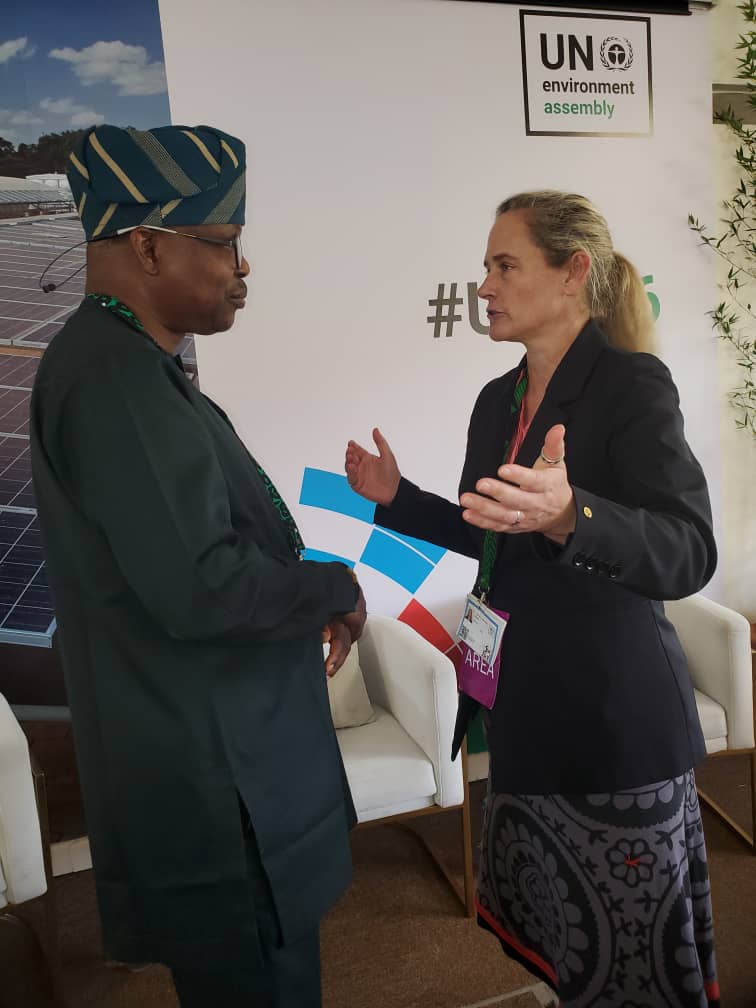
Salako told the conference that he looked forward to continue working together, with nature, to tackle the impacts of climate change and biodiversity loss in Africa and beyond. He said Nigeria’s vision and that of President Bola Ahmed Tinubu was to ensure that the World truly unites and responds to the biodiversity and climate crises as one. He added that President Tinubu, since assumption of office, has been giving priority attention to environmental sustainability, scaling up renewables, making the national budget greener and putting the economy on a pathway to less carbon dependent.
“In Africa, because, the region will be the most affected by climate change, we are united in being the most ambitious in protecting our lands and seas. In the ECOWAS sub-region alone, we have reached a consensus to support the ambitious target of protecting 30% of our lands and oceans by 2030 and to promptly ratify the BBNJ treaty. And just last week, ECOWAS countries also met in Nigeria to jointly decide on a path to develop a regional plan for the implementation of 30 by 30. But this, ladies and gentlemen, is only part of the solution and we must unite to ensure that our call for ambition for the expansion of protected areas is matched with equal ambition on finance, on halting human-induced extinction of wild species, on mutual accountability to halt forest loss and degradation, on securing species recovery and the restoration of jeopardized ecosystems”, the Minister said.
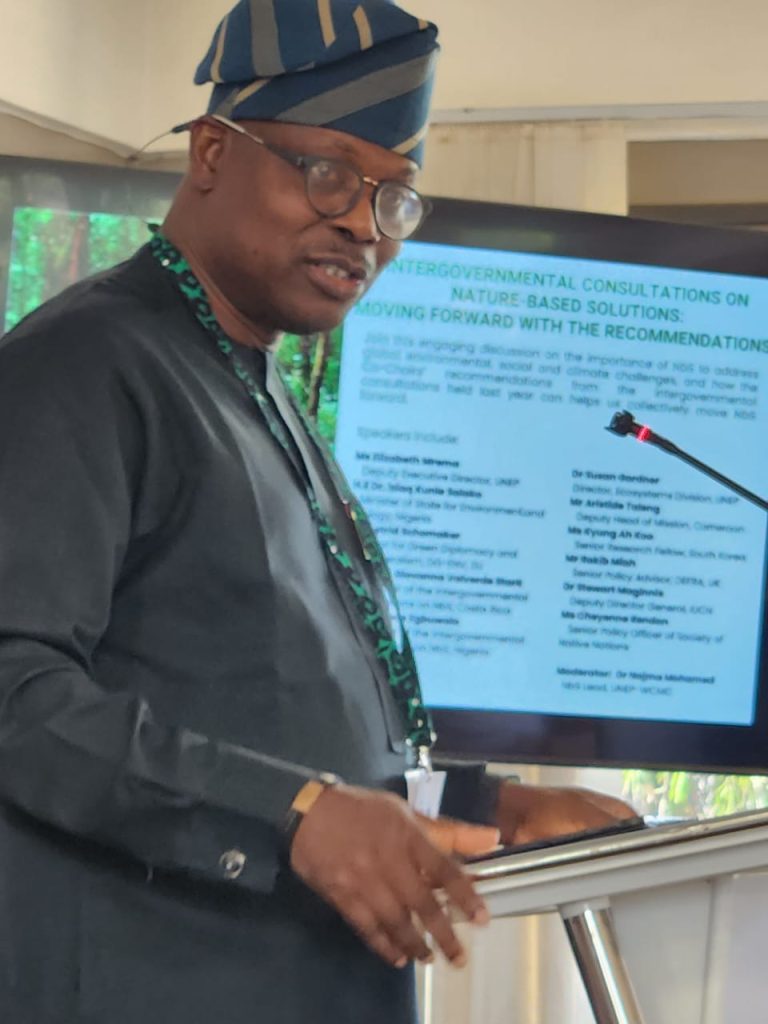
He called on all participants to become bold champions of nature-based solutions, ambitious, innovative and disruptive . He advocated that member Nations should use the opportunity to enhance their commitment, foster collaboration, and continue the momentum in support of the implementation of bold nature-based solutions worldwide.

